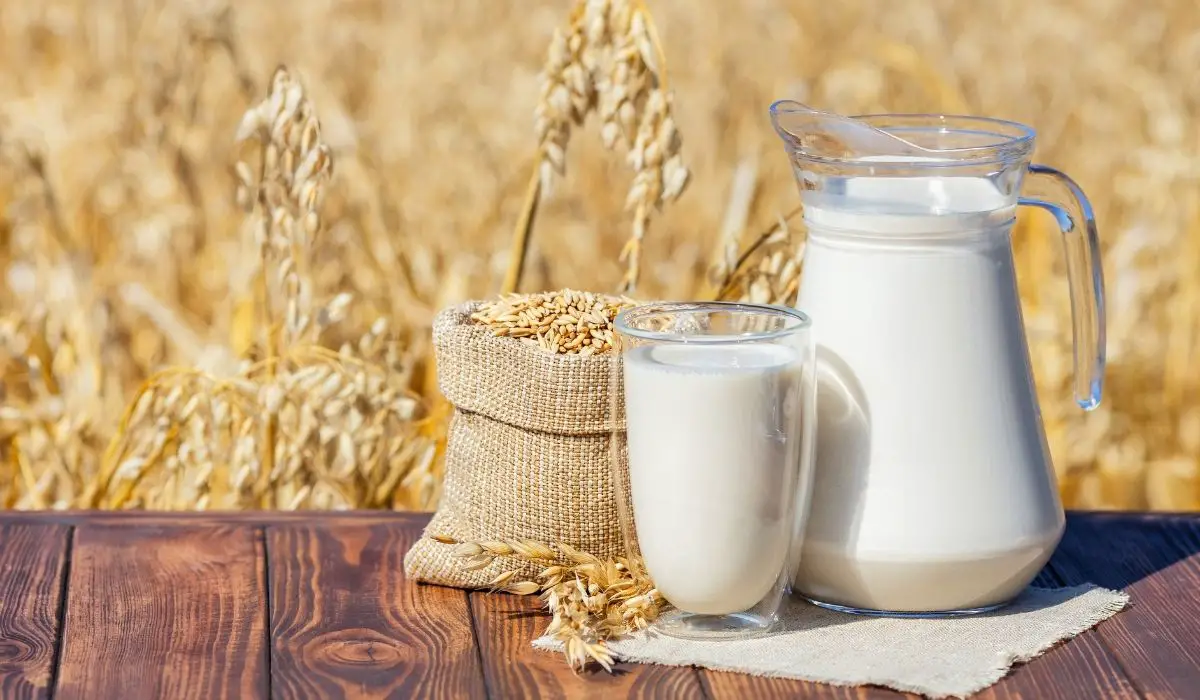Last Updated on August 14, 2022 by Griselda M.
I am going to show you this amazing milk leaves cleaner, its perks, and how to clean plant leaves with it. The cleaning liquid is made from cow’s milk, and there are so many benefits to using it.
You will like it. I use this milk leaves cleaner for my daily cleaning activities. I use it for washing my hands, dishes, fruits, vegetables, and many other things. You can clean plant leaves with this milk product. So let’s see how we use this milk leaves cleaner and its many advantages.
It’s amazing what some things can be used for. When it comes to cleaning our plant leaves, it seems like the simplest of things but can be quite daunting and difficult. It may not seem like a very viable option, but there is something that you can use to clean your plant leaves with. Yes, milk! Now, don’t panic or think it is something that you can only use as a child.
In fact, it is a common household cleaner which is great for those who are looking to clean up their environment without wasting a lot of money. It is very easy to use and will not damage your plants in any way.
With its strong antimicrobial properties, milk is one of the most effective cleansers in nature. You can use milk to clean dirt, oil, and grime from your countertops, floors, and furniture. Find out how you can clean plant leaves with milk in our guide and understand the milk cleaning properties.
What is Milk Cleaner For Plants?
An important step to growing beautiful plants is keeping the soil healthy and free of mold. One way to keep your plants’ soil healthy is to use milk. Milk is an excellent fungicide. As long as the milk you buy is fresh and unadulterated, it can be used to keep your plants healthy and disease free.
Plants need a natural balance of nutrients to thrive, but most plants aren’t provided with the number of nutrients they need in their soil or water. While some plants can thrive without additional nutrients, others require them to grow to their optimum potential.
You don’t have to spend a lot of money to keep your plants healthy and happy. In fact, there are plenty of natural solutions that are cheaper than buying expensive fertilizer, soil additives, or pest control products.
Learn more about Cleaning Plant Leaves With Olive Oil – Is It A Terrible Idea?
Can You Clean Plant Leaves With Milk?
A lot of people find themselves wondering if they can clean plant leaves with milk. The answer, of course, is that it depends on what type of plant leaves they are dealing with. Some plant leaves have a high amount of sap that could make them difficult to clean.
When you add in the fact that some plant leaves can get damaged if cleaned improperly (they can become brittle and dry if too much moisture is removed) and you can see why the effectiveness of using milk to clean certain leaves may be questionable.
Is Milk a Viable Plant Cleaner?
Many people are surprised when they find out that milk is one of the best plant-cleaning substances out there, and it works for several reasons. First, the protein in milk helps to coat the leaves of plants. Second, the lactic acid in milk helps break down plant residue. Third, milk can attract beneficial bacteria.
Fourth, the calcium in milk helps plants build strong roots. And finally, the calcium in milk helps to deter pests, like the aphids that often infest plants.
What is The Effect Of Milk On Plant Growth?
Milk and plants have been long-standing partners in agriculture. But did you know that giving milk to plants can improve plant growth? Researchers at Kansas State University found that the presence of milk can boost plant growth.
They compared the growth rate of lettuce, spinach, and green beans when they were grown in soil infested with E. coli. It turns out that those growing in milk-infused soil were healthier, more robust, and grew faster than the control group.
How To Use Milk As a Plant Cleaner?
If you don’t have a compost pile, you can use milk to fertilize your soil. Milk contains calcium, phosphorus, potassium, magnesium, and sulfur. These minerals are absorbed through plant roots. Milk can also be used to clean pots, plant trays, windows, countertops, and mirrors. Just soak your object in warm milk, rinse, and wipe dry.
Milk is a good plant cleaner, but only if it has been pasteurized. Pasteurization kills the bacteria that cause rotting and fungus growth. It is the process of heating milk to 145 degrees F for 30 minutes. Once pasteurized, milk can be used to clean plants by soaking them in water or sprayed on with a hose or garden sprayer.
Conclusion – Clean Plant Leaves With Milk
In conclusion, there are many ways to clean plant leaves, but one of the best, cheapest and simplest ways to clean them is using milk. It is because milk has two important properties, which can easily clean plant leaves. The first is milk has a high acidity level that kills all bacteria. The second property is milk has a unique smell, which makes it impossible for dirt to grow and stay on the plant leaves.
Thank you for reading this article on how to clean plant leaves with milk, for other plant-related articles, check our other content. Happy cleaning with this natural product.
FAQ
What happens if you water plants with milk?
We all know that plants thrive best in soil that is full of nutrients. Soil is made up of many components such as Organic matter (decomposed plant and animal remains), Nitrogen (N), Phosphorus (P), Potassium (K) and calcium (Ca). All these elements must be present for a plant to thrive. Milk is made up of Calcium, Phosphorus, Magnesium, Sodium, Potassium, Zinc, Protein, Fat, Carbohydrates and other minerals. What happens if you add milk to a plant's soil? Will it grow? Of course it will, because the milk contains nutrients that it can use to grow.
How to clean plant leaves with milk?
A quick tip if you're looking to remove stubborn stains from your plant leaves. You can do so by using a mixture of milk and vinegar or lemon juice, according to The Kitchn. It's a pretty simple recipe, all you need is milk and vinegar. Pour 1/2 cup of milk into a bowl, then add 4 teaspoons of white vinegar and mix. Let the leaves soak in this mixture for at least 10 minutes, and then rinse off the solution. Repeat this process until you no longer see the stain, and your leaves should be as clean as new.
Is milk good for plants?
Milk is a key source of nutrients for young plants. The reason is that the proteins and calcium in milk provide the building blocks for new plant tissues. Milk is a good choice if your plants are growing slowly. When using milk to feed plants, remember that it needs to be warm. A warm bowl of milk is essential for the baby plants to absorb the nutrients.
Branko is the world‘s most enthusiastic gardener! He is always on the hunt for the perfect flower, bush or tree to add to his ever–growing garden. He is known for his love of all things green, and his passion for nurturing the plants he grows is unmatched. He loves to get his hands dirty and can often be found humbly tending to his garden at all hours of the day. Branko is the go–to guy when it comes to gardening advice – he is always happy to share his knowledge and wisdom with anyone who will listen. He also loves to play pranks on unsuspecting visitors, so beware if you enter his garden!



